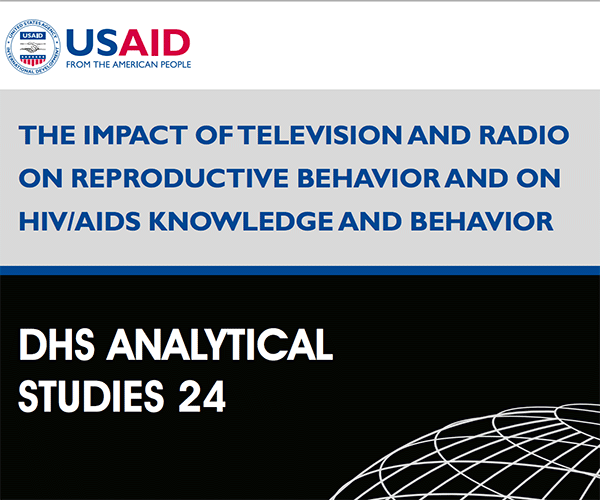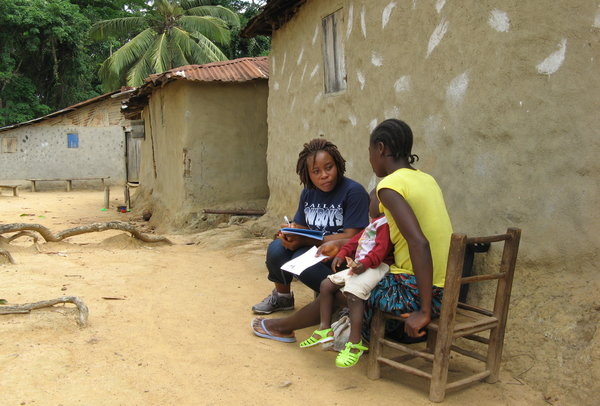A new study finds that radio and television can effectively promote use of contraceptives, change number of children desired and transmit information on HIV transmission and how to avoid infection.
These are the findings of a recent study by Charles Westoff, Dawn Koffman and Caroline Moreau of the Office of Population Research at Princeton University. DHS Analytical Studies No. 24: The Impact of Television and Radio on Reproductive Behavior and on HIV/AIDS Knowledge and Behavior was conducted through the MEASURE DHS project with funding from USAID.
In their study, Westoff et al use Demographic and Health Surveys (DHS) data to examine the association between exposure to radio and television and reproductive health knowledge and behavior. The researchers found a strong relationship between television viewing and use of modern contraception and a smaller number of children desired. In addition, they found that exposure to television and radio was associated with knowledge of the causes of HIV/AIDS and how to prevent infection.




